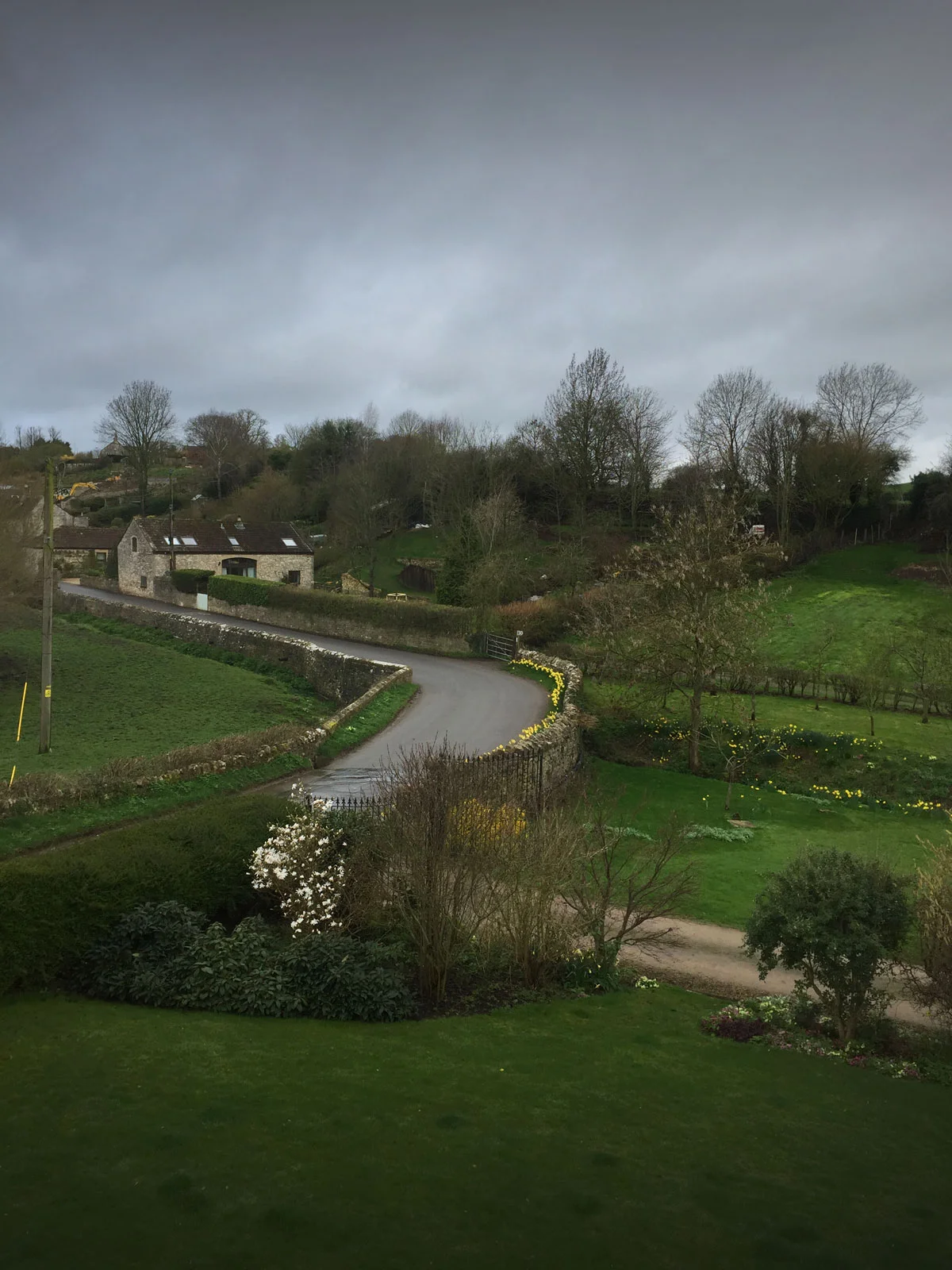State College, Pennsylvania. September 6, 2018.
Atmospheric perspective is a way to create the illusion of depth in a painting. Generally, elements in the foreground have saturation and contrast, while elements in the distance are muted and lighter.
In nature, this can be seen when one looks toward the horizon – through an atmosphere full of particles and moisture – to see light-blue mountains or a hazy skyline. Off in the distance, things are less saturated. Foggy.
* * *
Our long-term goals can fall victim to perceived atmospheric perspective.
It's easier to focus on what's in front of our faces – what's visible in high contrast, saturated with color.
It's possible to forget that the things on the horizon are vibrant too. That our job is not to remain still – where things are clear and in focus – but to aim just beyond our vision.
To point, and to go with purpose... knowing that the atmosphere has a muting effect. That what we can see of our destination is not nearly as vivid as it will be when we get there.







